

Thank you Laci - will pass on your kind praise to Ciaran. So happy to hear you found it interesting.
Written by Ciaran Vipond on Feb 09, 2024 | 6 Comments
Hot on the heels of St. Brigid’s day is the feast of another female Irish saint on February 11th. It’s an important one for fans of sweet treats as she is the patron of beekeepers: St. Gobnait of Ballyvourney. Bees hold a unique place in Ireland, so in honor of St. Gobnait, we thought we would look at the curious tales of bees and beekeeping in Irish myth, law and folklore.
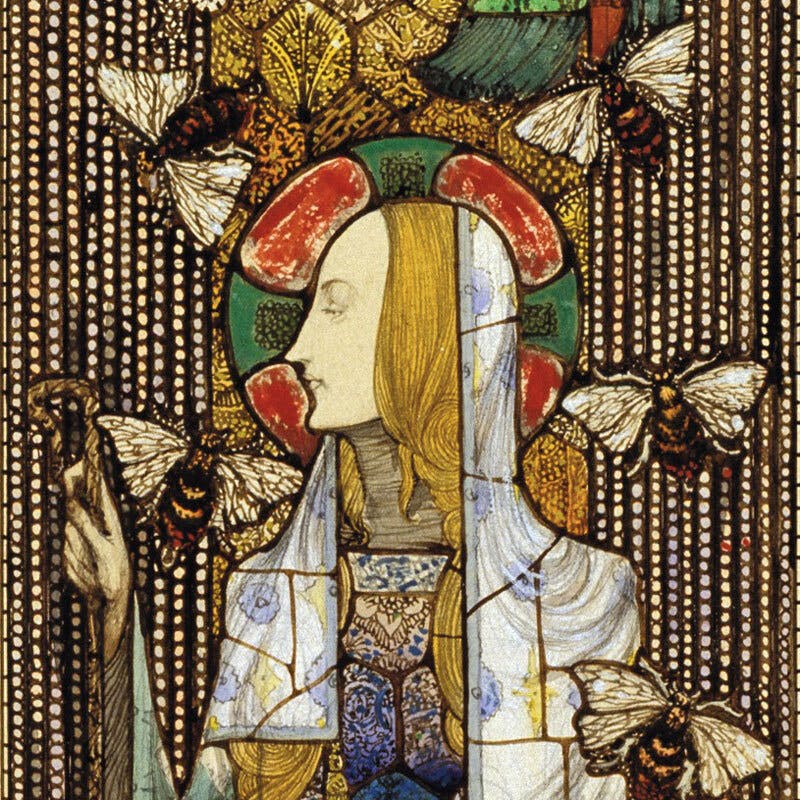
Beekeeping in Ireland is thought to have been practiced for at least 2,000 years, and bees themselves were held in very high regard in ancient Ireland. Tír na nÓg, the land of the gods, was said to have rivers that ran with honey and mead.
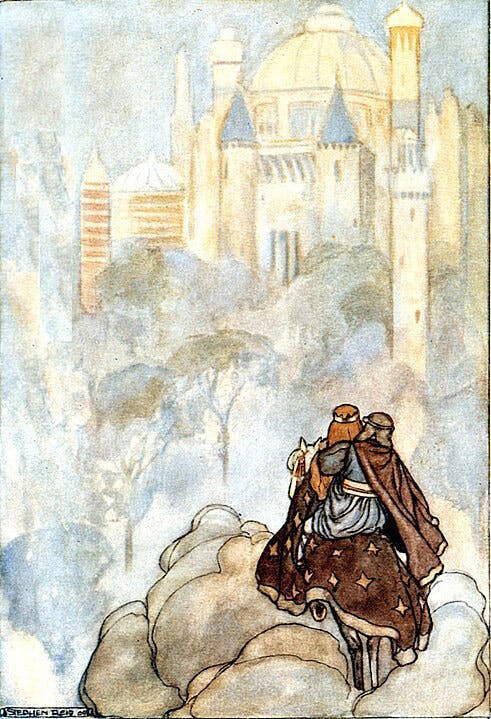
Celtic myth tells us that bees were otherworldly beings, capable of buzzing their way between this world and the next, acting as messengers. It was also said that when a soul left the body it did so as a bee or a butterfly, so woe betide someone who harmed such a creature!
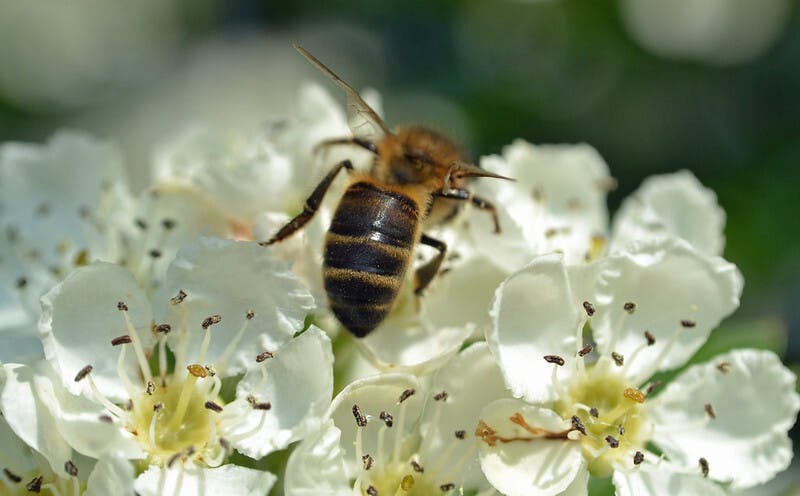
Bees make an appearance in the Brehon Laws, one of the earliest forms of written law in Europe, in a section known as “The Bee Judgements” or the Bechbretha. Composed in the 7th century, they dealt with all manner of issues related to beekeeping, including the ownership and value of swarming bees, what compensation was owed by the beekeeper to a person stung by one of their bees, and even the compensation owed to a beekeeper if someone's hens ate their bees! We can tell that these were extremely important creatures indeed to be given such attention in the law of the land.
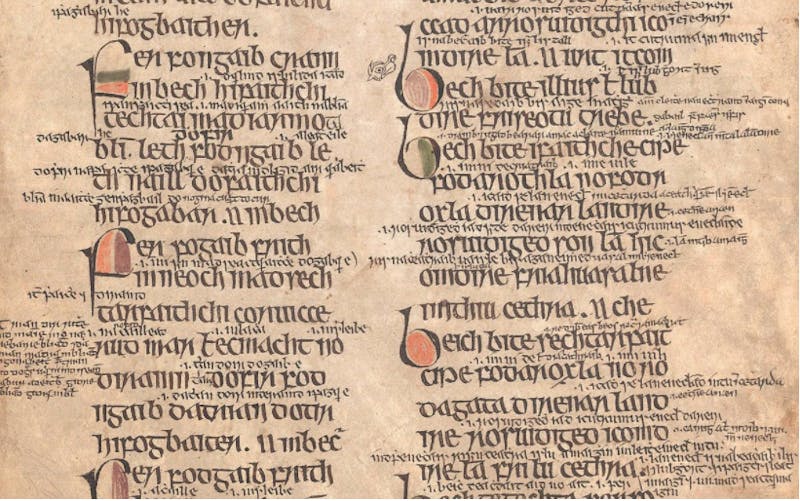
But then perhaps this protected status is not so surprising when you consider that honey was the only appreciable form of sugar known on the island of Ireland until the Normans brought others in the 12th century.
Given this elevated, and at times otherworldly status, all manner of superstitions arose around bees in Irish folklore. A single bee entering your house was a sign of good luck or wealth on its way. And it was deemed prudent to keep any bees you were caring for well housed, protected and even respectfully informed of all the important events of daily life!
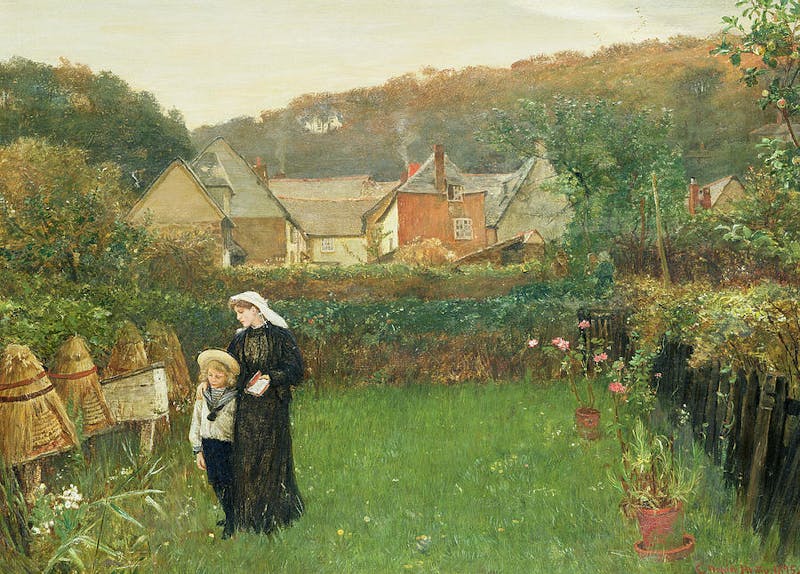
If you kept them well, bees would bless your home with honey, mead, and by association, wealth. Honey had a near-magical status and was used in healing and rituals. When turned into mead, it was considered to have greater power still, and was the beverage required to mark big celebrations including ritual feasts and weddings. This led to the banquet hall on the Hill of Tara being known as Tech Mid Chuarda, the house of the circling of mead. It was even used in decision making - Mead was infused with hazelnuts, givers of wisdom, and said to grant prophetic abilities to the drinker.
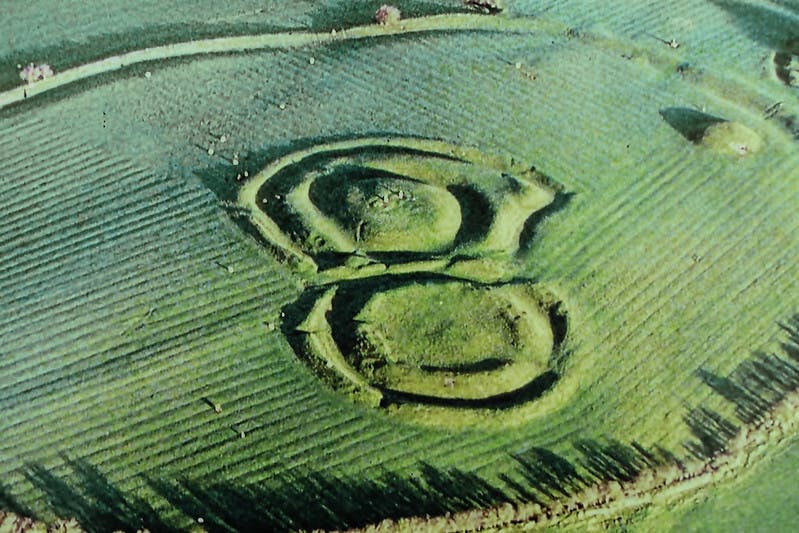
And after all that, we finally come to St. Gobnait, the patron saint of Beekeepers. Born in the 5th or 6th century in Co. Clare, she was a resident of the smallest of the Aran islands, Inisheer, where she reportedly set up a small church. After having a vision, St. Gobnait returned to the mainland and established a monastery at what is now known as St. Gobnet's Wood in Ballyvourney, Co. Cork. And alongside the church, beekeeping was St. Gobnait’s calling.
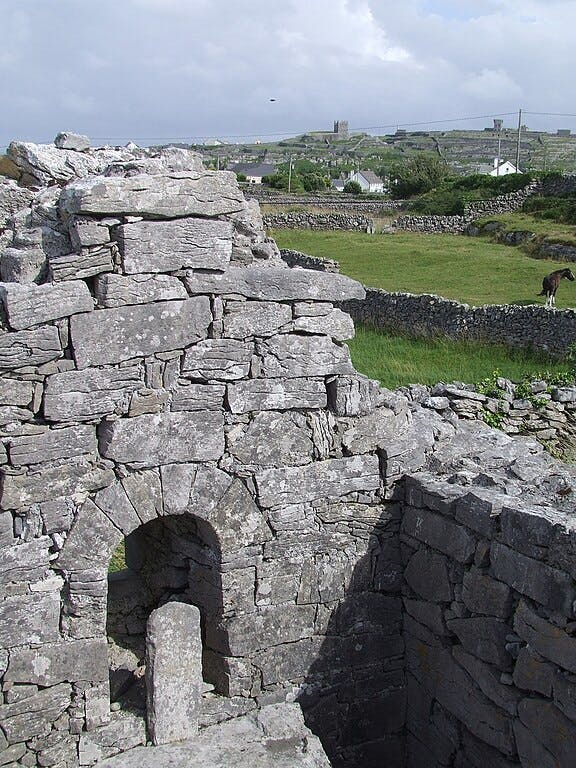
She reportedly held such a strong connection with these creatures, that she was able to set them on thieves or would-be assailants, and used their honey for healing the sick. She is credited with saving the people of Ballyvourney from the plague.
These days beekeeping in Ireland is more popular than it has been in many years and the appetite for local honey has risen too! Initiatives like no-mow May and the National Pollinator Plan are seeing habitats for wild bees coming back and there is a renewed appreciation of these industrious creatures. We're sure our ancient ancestors, and indeed Gobnait would approve.
Have a question or something you're not entirely sure about when browsing our pieces? Please reach out. You can send us a note or give us a call—the Dublin workshop is here to make sure that you have a perfect experience from start to finish with My Irish Jeweler.
Follow us on Facebook and Instagram, to see what's new and upcoming. Join our Email list for early offers and special features.

Ciaran Vipond
My Irish Jeweler
Born in Co. Antrim and reared in Dublin, I was fascinated with Gaelic culture from an early age. I suppose it's not surprising given my mother inherited a grá for the Irish language from my grandfather, an Irish school headmaster. And that grá continues! My brother and sister are now Gaelic teachers here in Ireland, my niece is an award winning Irish dancer, and I proudly work to share Irish culture through our Irish and Celtic Jewelry at My Irish Jeweler!
I love researching and reading about the history of Irish design. It's at the core of what we do here at My Irish Jeweler. I find much of it so interesting that I have to share what I find. I hope you enjoy it!


Thank you Laci - will pass on your kind praise to Ciaran. So happy to hear you found it interesting.

I am always fascinated by the stories and history that you folks include in your newsletters. My Great Grandparents came from Ireland to settle in Canada many generations ago. I may live on a far away Vancouver Island but my Irish heritage is deep in my soul.
Thanks for keeping it alive around the world. CdP.

How wonderful Charlie - thank you for sharing your own story. There's an old Irish phrase "An té a thabharfas scéal chugat tabharfaidh sé dhá scéal uait." - 'Whoever will bring a story to you will take two stories from you.' We are lucky to hear wonderful stories like yours from our friends around the globe - So sharing the curious stories we happen across is the very least we can do. All the best from Dublin!

I love to read your "histories of." Keep them coming.

Thank you Suzanne - that is wonderful to hear. We will do our best!

Just WOW!!!! That was fascinating to read!